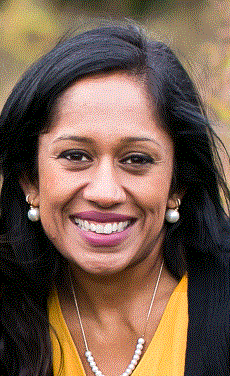If You Are Human, You Fit In
Racism and inequity have been on our minds extensively over the last few weeks and rightfully so. As Americans continue to mourn the loss of George Floyd, and the many Black lives lost, many seek justice in what seems to be an uphill battle.
As an Indian woman living in America, I have been stereotyped and experienced discrimination and racism.
One particular memory that I am reminded of today, takes me back to when I was seven years old. My mom took me trick or treating and it was very exciting as we had only been in America for a few short years. The fact that we were doing something everyone else was doing felt great. Unfortunately, after one block, my mom said we had done enough. To this day, I do not know why she stopped; all I can infer is perhaps she felt out of place. As you can imagine, at seven, I wanted to eat my way through candy for the next month and was very upset to hear this. Anger took over and it led me to say the most hurtful thing I could imagine, ‘I wish you were White.’
At this young age, I did not realize the level of hurt this phrase might have caused my mother. She wasn’t even mad at me; perhaps she understood my frustration of wanting to fit in. As time moved us on and as the years brought wisdom, it gave me time to think what really brought me to that moment. How did I get to this level of dissonance and sheer confusion? What I could only conclude [and what is still under investigation], is that as an Indian girl living in America, I thought having what everyone else had and doing what everyone else was doing was important to fit into society. These differences made me feel as if I didn’t belong and I believed all my sadness would go away and I would “fit in” if only I were White. Something about me was different and I was reminded of it constantly. I was bullied and teased all throughout my elementary days because of the color of my skin, the clothes that I wore (or didn’t wear) and even the school supplies I had or didn’t have. I didn’t understand then and I don’t understand today. It was traumatizing. Unfortunately, this type of discrimination continues.
Now that I am raising children of my own, I have worked hard to find my racial identity and am proud to be bicultural. I also work hard to instill these values of biculturalism to my children every day. I am grateful for these challenges as they have shaped my future and my children’s future and will continue to do so. The implications of racism are long-lasting and spill over to the generations that follow. And whether they are rooted from institutional or systemic racism or an unparalleled event, the effects are long-lasting.
This is one just one small example of racism many face today and isn’t intended to be a comparison to the injustice that Black communities face.
There is no place for hate, discrimination, or racism in our society. And we must work to transform those systems that use race to establish and justify systems of power, privilege, disenfranchisement, and oppression.
This is the time to step-up and educate ourselves. We must recognize the biases we carry, and the language we communicate to make a real change. We are all responsible for creating a society built on equity, inclusion and social justice. Everyone can do something to move us forward; we have the power to control the future of what happens to us and those around us. We must speak out against racism and discrimination every time it happens. We must fight for liberty and justice for all as it isn’t given.
This country is in a potentially transformative movement as it continues to seek justice for the death of George Floyd and all the Black lives lost. This is the time for us to act. Our hearts go out to the families affected and we stand with you.
Black Lives Matter.


